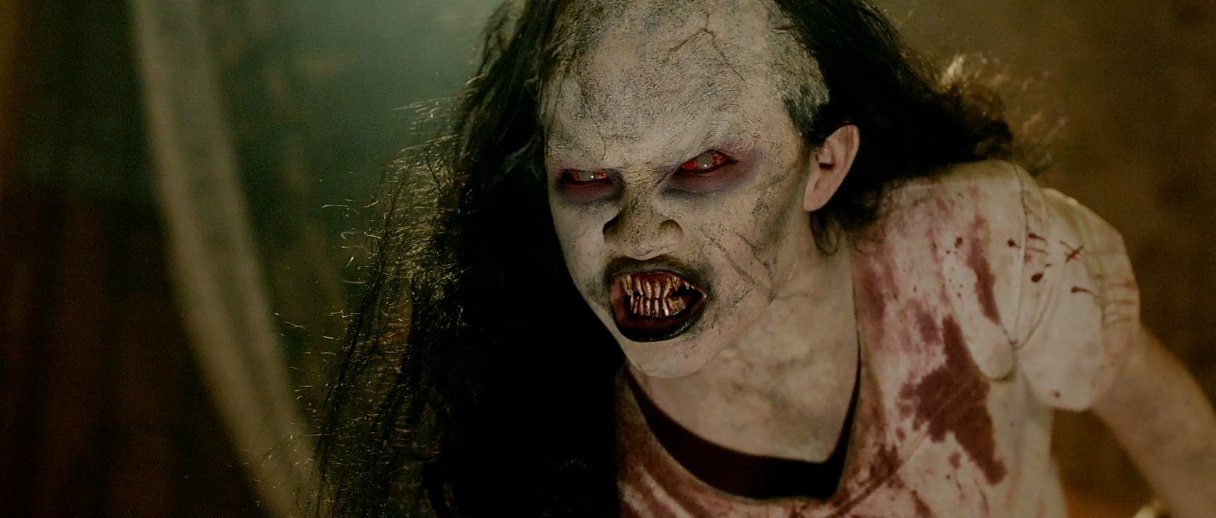
Grandpa Kusno plays a pivotal role in the story of Sumala by offering a potential solution to the problem that arises after the possession of Kumala by her twin sister, Sumala. Kusno is a shaman who has knowledge of the supernatural world and is aware of the curse placed upon Soedjiman and his family. After the horrific events unfold, Soedjiman, desperate to save his daughter Kumala, turns to Kusno for help. The shaman, however, presents Soedjiman with two possible solutions, each with its own set of consequences and time limits.
The first solution that Kusno offers involves removing Sumala’s spirit from Kumala’s body before it is too late. According to Kusno, Sumala and Kumala are still separate entities at the moment, and there is a window of time before the spirit of Sumala completely takes over Kumala’s body. Kusno suggests that if Soedjiman can bring Kumala to him, he will perform a ritual to rid her of Sumala’s evil spirit. This solution would give Kumala a chance to go back to normal and live a peaceful life, free from the influence of her deceased twin. However, this option is time-sensitive, as Kusno warns that the ritual will only work until Kumala’s tenth birthday. Once Kumala turns ten, the Devil’s claim over her will be complete, and there will be no way to separate Sumala’s spirit from Kumala’s body. The deal with the Devil, made by Soedjiman and Sulastri years ago, means that the spirit of Sumala is destined to take over the body of the living daughter when she reaches this age. If the shaman’s intervention does not happen before the tenth birthday, then all hope will be lost.
The second option that Kusno presents to Soedjiman is much darker and much more tragic. If Soedjiman fails to separate Sumala from Kumala before her tenth birthday, the only way to stop Sumala’s possession for good is for Soedjiman to kill Kumala. Kusno gives Soedjiman a blessed blade, telling him that if Sumala completely takes over Kumala, the only way to end the evil once and for all is to pierce Kumala’s heart with this blade. This would kill her, and in doing so, it would also destroy Sumala’s hold over her. However, Kusno warns Soedjiman that this is the last resort, a grim solution that requires him to kill his own daughter to save the village and his family from further destruction. It is a heartbreaking choice for Soedjiman, who has already mistreated Kumala throughout her life. But Kusno makes it clear that this is the only way to ensure that Sumala’s evil will not continue to torment the village.
These two options reflect the gravity of the situation and the terrible price that must be paid for breaking a deal with the Devil. Kusno understands the supernatural forces at play and knows that no easy solution exists. Soedjiman, caught between the desire to save his daughter and the guilt over his past actions, faces an agonizing decision. While the first option gives him hope, the second option brings with it an unbearable weight, forcing him to confront the consequences of his past mistreatment of Kumala.
In the end, Soedjiman’s inability to act quickly leads to disastrous consequences. He tries to save Kumala, but as the spirit of Sumala grows stronger, Soedjiman is faced with the horrifying realization that there is no way to save Kumala. The tension between the two solutions presented by Kusno highlights the tragic inevitability of the situation. Soedjiman’s failure to make the right choice in time ultimately results in Sumala fully taking over Kumala’s body, leading to the horrifying culmination of the curse. The role of the shaman, Grandpa Kusno, thus underscores the theme of fate and the terrible consequences of breaking promises, as the only choices left are those that bring about irreversible tragedy.
